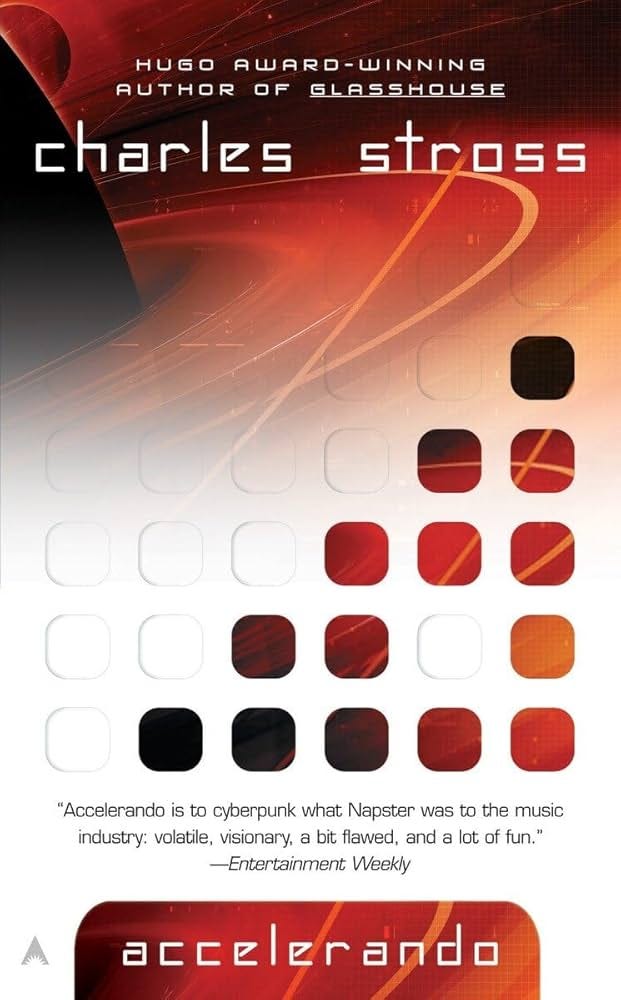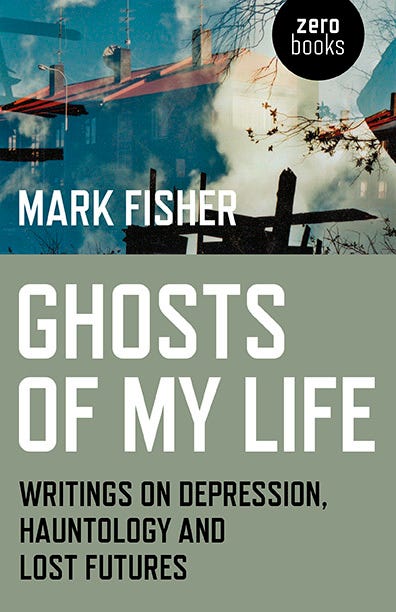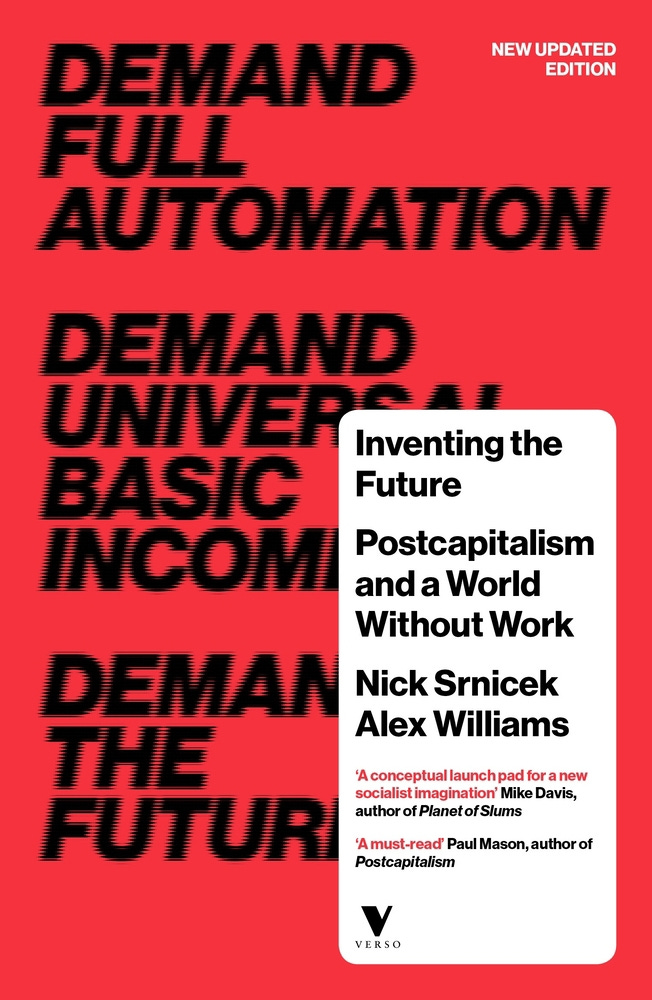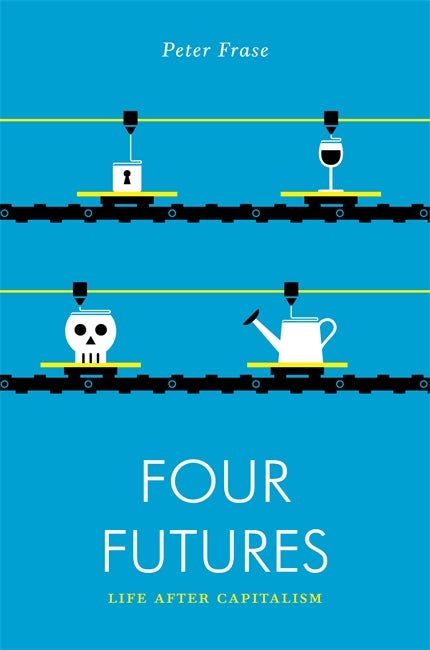Doomscroll is now available in audio form on Apple Podcasts, Spotify and everywhere else. Audio episodes are coming out every week. We have an incredible line up of new guests coming up for this winter.
If you’re in NYC — join me at 5pm on Saturday the 14th at Heart (442 Broadway) with Michael Connor, co-executive director of Rhizome, and artist Aria Dean to discuss “Info-Wars”, our influential research program into alt-media theory.
During the pandemic, higher education transformed into Zoom meetings. As a result, the gap between a college education and a Twitch stream significantly narrowed. This made me think seriously about the potentials for asynchronous educational materials that run parallel to a more formal academic structure.
For the past few years I’ve published an annual syllabus of reading materials, video lectures and more. These syllabi are taken from university courses that I used to teach at the Rhode Island School of Design and the School of Visual Arts in NYC. I’ve also been an outside advisor at Carnegie Mellon University and Tufts University.
This year, I’ve made a giant list of book recommendations that includes syllabus material as well as many new picks (some of which will be forthcoming guests on Doomscroll):
Globalists (2020) by Quinn Slobodian
This is the definitive history of the Geneva school of neoliberalism. It begins in the 1930’s and runs up until the present day. Reading this book will tell you infinitely more about today’s political climate than frantically refreshing your news feed every 5 seconds.
Against Platforms (2025) by Mike Pepi
This is technically a pre-order for a book that comes out in January. I’ve said many times that all my opinions are just recycled Mike Pepi takes from 2014. The meta frame of platforms vs institutions, in both culture and politics, is inspired by Mike’s analysis and guides much of my thinking today.
Accelerando (2005) by Charles Stross
Accelerando is a science fiction novel that may as well be considered a documentary from the future. It describes a world of total deregulation, financialization, digitization and social atomization. I first heard about this from artist Daniel Keller many years ago.
Ghosts of My Life (2014) by Mark Fisher
This is the text that Matty Healy and I referenced so frequently in episode #08 of Doomscroll. The book explores hauntology and the lost futures that neoliberalism foreclosed. Few writers have impacted my life and understanding of the world like Mark Fisher.
Share this post with someone who should read more books this year. If you’re receiving this newsletter from a friend or loved one, this is a sign that they’re worried about you. Most likely, that conversation over Thanksgiving dinner was super embarrassing (in front of their family!) and you absolutely need to know about the original meeting of the Mont Pelerin society in Switzerland back in 1947 which marked an ideological departure from the quasi-socialist Keynesian consensus of advanced industrial economies in the west. Its okay sweetie, we love you, we’re just looking out for your best interests at heart xoxo
As far back as 2019, when I was teaching at SVA, it was clear that many of my students were learning more from their podcast feeds than from their expensive and accredited university education. This represents a genuine crisis in the field of academia. Today, a college degree still correlates with higher lifetime earnings (for now), but it no longer reflects the quality of the information that students learn. As my good friend
recently said, at the launch for issue #3 of Damage Magazine at MoMA-PS1 in New York, “humanities students are highly concerned with decolonizing the canon but they don’t even know what the canon is.”Higher education has become a place to acculturate professional aspirants to elite values. Students learn the etiquette and affectations of the court in order to advance their own upward mobility within our decaying institutions. Education rarely correlates with a mastery or depth of understanding in any given field. I wrote about this process of elite capture in an earlier essay called Proof of Body:
From the 1980s onward, neoliberalism privatized more and more aspects of American life. As a result, the increased cost of living erected new barriers to all elite positions in society. When state funding withered, our universities, museums, and papers of record were increasingly forced to seek aid from private donors and powerful interests.
I’ve linked all of the syllabi and a bunch more book recommendations below. There’s no particular order you need to do these in. Just start at what feels most interesting to you.
Into the Universe of Technical Images (1984) by Vilem Flusser
This is Flusser’s masterwork that lays out a groundbreaking media theory with incredible foresight onto digital image production, social media platforms and AI. Its staggering to think this was written almost 40 years ago.
Inventing the Future (2015) by Nick Srnicek & Alex Williams
Nick Srnicek was a guest on the podcast back in 2022. This book is probably the single most inspiring text that shaped my utopian ideas and political imaginary at the time. Srnicek and Williams attempt to answer Fisher’s famous provocation to imagine a world after capitalism.
Four Futures (2016) by Peter Frase
An exploration of the utopias and dystopias that could develop from our present society. This is basically a political compass for the future and lays out a super important vision. Its a touch stone for any left accelerationist reading list.
Keep reading with a 7-day free trial
Subscribe to Joshua Citarella's Newsletter to keep reading this post and get 7 days of free access to the full post archives.










